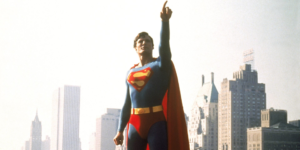Reviewed by GREG KING
Director: Paolo Sorrentino
Stars: Michael Caine, Harvey Keitel, Rachel Weisz, Paul Dano, Jane Fonda, Alex MacQueen, Roly Serrano, Ed Stoppard, Luna Zimic Mijovic, Paloma Faith.

Music and images have always played an important part in the films of Italian director Paolo Sorrentino, who won an Oscar for his grandiose and occasionally self-indulgent Felliniesque The Great Beauty, a film that divided audiences. These elements also play an important role in his latest film Youth, which is a surreal, melancholy, bittersweet, visually sumptuous, poetic and occasionally existential meditation on life, memory, loneliness, aging, mortality and art. Youth is Sorrentino’s second English language film, following This Must be The Place, which starred Sean Penn. While it may be more accessible than The Great Beauty it is still a film that lacks broad appeal for mainstream audiences. But what remains is the fact that Sorrentino has a strikingly singular vision as a filmmaker and his command of the craft is evident in virtually every frame of Youth.
The film is set in a luxurious health resort and spa located in the foothills of the picturesque Swiss Alps. Fred Ballinger (Michael Caine) is a retired composer and conductor who is enjoying a therapeutic stay at the resort courtesy of his concerned daughter Lena (Rachel Weisz). He is approached by a royal emissary (Alex MacQueen) to come out of retirement to conduct a special performance of his masterwork Simple Songs for a special Royal Command performance to celebrate Prince Phillip’s birthday. Ballinger is reluctant to participate and politely refuses the offer. Unfortunately one does not easily refuse Her Majesty, and the pressure to briefly come out of retirement continues.
Meanwhile his film director friend Mick (Harvey Keitel) is trying to out the finishing touches on a new script while wondering whether he will ever complete another motion picture. And Jimmy Tree (Paul Dano) is an angst ridden young actor known for one superhero role. He is struggling to psyche himself up for his latest role, in which he will play a controversial figure in a change of pace.
Youth is certainly beautiful to look at, and is a feast of colour and movement. Sorrentino’s regular cinematographer Luca Bigazzi captures some seductive visuals and lush, gorgeous images. And David Lang’s haunting score is achingly beautiful. But the pace may be a little too meandering for some, and its esoteric nature will not appeal to others.
A number of surreal fantasy sequences punctuate the leisurely paced and meandering narrative, which unfolds as a series of vignettes. Sorrentino has littered the film with a gallery of eccentric characters, including an overweight former soccer star, a vivacious young masseuse, and an elderly couple who never speak to each other. There are lots of smaller moments that register emotionally and help to illustrate the film’s big themes. And the script is peppered with moments of dry wit.
The film boasts one of Caine’s more nuanced performances for some time, a role that Sorrentino created especially with him in mind; here he seems engaged and committed to the character, a remarkable contrast to his bland performance in the recent, dire supernatural fantasy The Last Witchhunter, a film he obviously did purely for the money. And Keitel dials back his usual intense persona here for a more layered and subtle performance as a director trying to rekindle his passion for the medium. This is some of his best work in ages as well. Caine and Keitel develop a wonderful rapport as a pair of grumpy old men comparing ailments and reflecting back on their past mistakes and regrets.
And Weisz as usual is good as Ballinger’s daughter who verbally eviscerates her father during one intimate scene in which she accuses him of placing his music ahead of his family. Jane Fonda makes the most of her small scene with a strong performance as Brenda, a veteran actress and Mick’s former muse who turns up at the spa and criticises the current trend of movie making in Hollywood.
★★★



